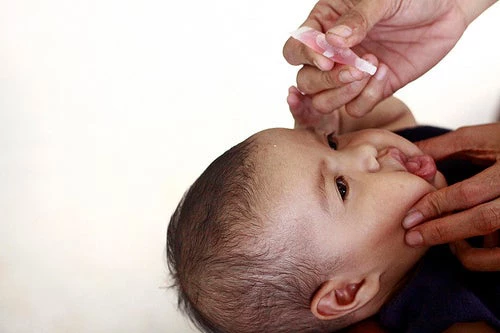This year on World Polio Day, health practitioners, policymakers and supporters of the Global Polio Eradication Initiative (GPEI) are more determined than ever to eliminate a disease that has plagued humanity since ancient times. We are frustratingly close to our goal: By the end of 2012, the total number of polio cases worldwide dropped 66% over the previous year to 223. To cross the finish line, however, integrating polio eradication into routine immunization and broader health service delivery will be critical, particularly in communities where the security situation hampers highly visible health campaigns.
In anticipation of achieving eradication, the World Health Organization earlier this year initiated a consultation on 'legacy planning' aimed at identifying ways in which the staff, expertise and infrastructure built up over decades through GPEI can be absorbed in national health sectors. It’s an issue we’re talking about at the World Bank, particularly in relation to our work on strengthening country health systems. Our partner countries need to lead in this legacy planning effort, articulating the best match between their needs and the array of assets the GPEI has to offer.
Legacy planning must commence by clearly identifying positive components of GPEI to build on, and which should be preserved in some form. In considering the Bank’s experience in Afghanistan, Pakistan and Nigeria – the three countries where polio is still endemic – key elements that may help countries improve overall health performance include:
- Household-based micro-planning, which enables identification of unreached groups to improve access to services;
- High quality disease outbreak investigation and surveillance systems supported by reliable laboratories and a hub-and-spoke system for lab testing;
- Monitoring and evaluation approaches that hold staff accountable for results and provide evidence for program management (e.g., accountability framework, rigorous data tracking, GPS data mapping and tracking of vaccinators, task forces at each level, performance incentives);
- Maximizing opportunities to provide integrated care, for example including Vitamin A and other micronutrient administration as part of polio campaigns;
- Partnerships with traditional and religious leaders and communities for immunizations; and
- Systems to harness lessons and establish a systematic evidence base (e.g., a 6-monthly expert review committee, on-demand rapid research to provide evidence for decision-making and skilled middle managers).
There’s no question the global health community has learned an enormous amount from the GPEI. The Bank stands ready to facilitate governments’ approach to legacy planning by: 1) working jointly with governments and partners to strengthen health systems and routine immunization; 2) responding to country requests for project support, including support to apply GPEI best practices to strengthen health systems; 3) incorporate results-based financing approaches to increase legacy opportunities; and 4) undertake analytic work to help countries develop alternative sustainable immunization financing scenarios, including for polio, by looking at accumulated debts, changes in grants, varying program costs and health care financing strategies.
As we plan together to end polio, we can’t miss the opportunity for countries to build on good practices and deploy skilled staff resulting from these efforts.
Follow the World Bank’s health team on Twitter: @worldbankhealth .
Related
Global Polio Eradication Initiative
World Bank and Health
Report: Polio Eradication & Endgame Strategic Plan, 2013-18 (WHO, UNICEF, CDC)


Join the Conversation